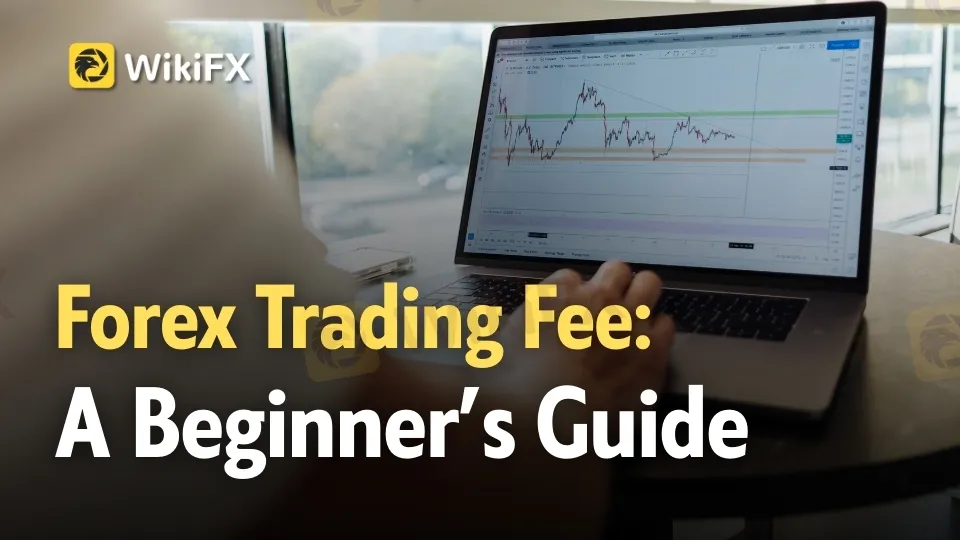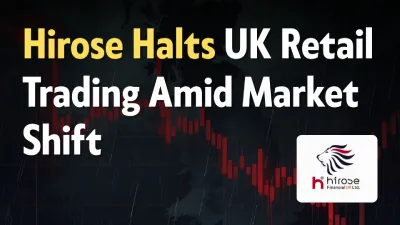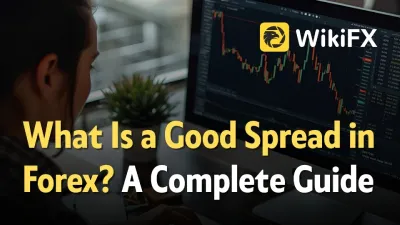What Is Forex Trading Fee? A Beginner’s Guide
Abstract:Understand forex broker fees and trading costs in detail. Explore fee comparisons, learn to reduce expenses, and maximize your profitability with practical forex trading tips.

Forex trading offers exciting opportunities for investors to profit from currency price movements globally. However, understanding the costs associated with forex trading is crucial for maximizing profitability. The term “forex trading fee” encompasses several types of fees and charges that traders incur when buying and selling currencies. These fees directly impact your trading profits and should be carefully considered when choosing a broker and executing trades.
This comprehensive guide explains the various forex trading fees, compares popular brokers fee structures, and offers practical tips to help you minimize costs and maximize your returns. Whether you're a beginner starting your forex journey or an experienced trader looking to optimize expenses, this article covers everything essential about forex trading fees.
What Is Forex Trading Fee?
A forex trading fee refers to the amount charged by brokers and financial institutions for facilitating currency trades. These fees compensate brokers for providing access to the forex market, maintaining trading platforms, and offering services such as execution, data feeds, and account management.
Unlike traditional stock trading fees, forex trading fees are typically embedded in the bid-ask spread or charged as explicit commissions. Additionally, traders may encounter overnight financing costs and account-related fees. Understanding all these fee types helps traders keep costs manageable and avoid surprises.

Types of Forex Trading Fees
1. Spreads
The spread is the most common forex trading fee and represents the difference between a currency pairs buy (ask) price and sell (bid) price. For example, if the EUR/USD bid price is 1.2000 and the ask price is 1.2005, the spread is 0.0005 or 5 pips.
Brokers make money from this difference. The tighter (smaller) the spread, the lower your transaction cost. However, spreads can vary based on market liquidity, volatility, and broker type.
- Fixed spreads stay constant regardless of market conditions.
- Variable spreads fluctuate depending on market activity and volatility.
Spreads are particularly important for day traders and scalpers who execute many trades and rely on tight spreads to maintain profitability.
2. Commissions
Some brokers charge commissions instead of or in addition to spreads. This is a fixed or percentage-based fee per trade, often charged per standard lot traded.
Commission-based models typically offer tighter spreads, which can reduce total trading costs for high-frequency traders. However, commissions can add up quickly, so it's important to factor them into your strategy.
3. Overnight Financing Fees (Swap Fees)
When you hold a position overnight, brokers charge or credit an overnight financing fee, also known as a swap fee. This fee reflects the interest rate differential between the two currencies traded.
- If you hold a currency with a higher interest rate, you may receive a credit.
- If you hold a currency with a lower interest rate, you pay a fee.
Overnight fees compound if positions are held open long-term, so it is vital for swing and positional traders to monitor these costs.
4. Account-Related Fees
Besides trading costs, there can be other fees associated with your trading account, such as:
- Inactivity fees: Charged if no trades occur within a specified period.
- Deposit/withdrawal fees: Costs for funding or withdrawing money from your account.
- Currency conversion fees: When your account currency differs from the withdrawal currency.
- Subscription fees: Charges for premium market data or advanced platform features.
How Forex Trading Fees Affect Profitability
Forex trading fees reduce the net gains from your trades. Even seemingly small costs, like a few pips in the spread, can significantly impact overall profitability, especially in high-frequency trading or with tight profit targets. For example:
- A 1 pip spread on EUR/USD equals roughly $10 per standard lot.
- If your trading strategy targets a 5-pip gain, a 1-pip spread consumes 20% of your profit potential.
Holding positions overnight with swap fees will further reduce profits or increase losses if the fee is negative.
Therefore, understanding and managing these fees is critical to successful forex trading.
Comparing Forex Broker Fee Structures
Forex brokers differ widely in how they charge fees, and choosing the right broker involves comparing their fee structures, services, and reputation. Below is an overview of typical fee structures among popular brokers:
| FP Markets | Fixed/Variable | From 0.0 pips raw | $6 per round trip (Pro account) | Yes | No inactivity fee | Tight spreads, multiple account types |
| IC Markets | Variable | From 0.0 pips raw | $6–$7 per round trip | Yes | No inactivity fee | ECN broker, popular with active traders |
| Pepperstone | Variable | From 0.0 pips (Razor) | $7 per round trip | Yes | No inactivity fee | Razor accounts offer lowest spreads + commissions |
| AvaTrade | Fixed/Variable | From 0.9 pips | $0 | Yes | $10 monthly inactivity fee after 2 months | One of the few with swap-free accounts for Islamic traders |
| ActivTrades | Variable | From 0.5 pips | $0 | Yes | No inactivity fee | No deposit minimum, good for beginners |
| Interactive Brokers | Variable | From 0.1 pip | From $0.08 per 1k USD lot | Yes | One free withdrawal monthly | Best for advanced traders seeking low commission |
This table highlights that brokers offering zero commissions often charge wider spreads, while those with tight spreads typically impose commissions. Overnight fees vary but are standard in most brokers. Also, inactivity and withdrawal fees can add costs if the account is inactive or frequently funded/withdrawn.
Tips for Minimizing Forex Trading Fees and Maximizing Profits
1. Choose the Right Broker
- Compare spread and commission costs for your preferred currency pairs.
- Look for brokers with transparent fee disclosures.
- Consider brokers with no inactivity fees or low deposit/withdrawal costs.
- Use regulated brokers with good reputations to avoid hidden fees.
2. Trade Major Currency Pairs
Major pairs like EUR/USD, GBP/USD, and USD/JPY tend to have tighter spreads and higher liquidity, which reduces your spread cost.
3. Optimize Trading Time
Trade during the most liquid market hours (London and New York sessions), when spreads are narrower.
4. Monitor Overnight Fees
Avoid holding positions overnight if swap costs are high or use swap-free accounts if available and compatible with your trading style.
5. Use Limit Orders
Market orders execute immediately at the worst available price, potentially increasing slippage and spread costs. Limit orders allow you to specify the price to control costs better.
6. Manage Trading Frequency
Avoid overtrading. Frequent trades with commissions and spread costs can erode profits.
7. Review Account Activity
Avoid inactivity fees by maintaining minimal trading activity within your brokers required period.
Real-World Examples
- A trader using Pepperstones Razor account trades one standard lot EUR/USD with a 0.1 pip spread and $7 commission per round trip. The total trading cost equals $8 (spread) + $7 (commission) = $15. This low-cost arrangement suits high-frequency traders.
- Conversely, a trader using a spread-only broker with an average 1.2 pip spread on EUR/USD but no commissions pays about $12 per standard lot per trade, but might save on commission costs with fewer trades.
- Traders holding a long USD/JPY position overnight might earn swap credits if the US interest rate is higher than Japans, boosting profitability, but should monitor to avoid negative swaps on opposite trades.
In summary, the forex trading fee you pay—comprising spreads, commissions, overnight fees, and account-related charges—directly impacts your trading profitability. Choosing a broker with favorable fees aligned to your trading style, trading major pairs during liquid times, and using cost-saving strategies can help optimize your forex trading journey.
Whether you are new or seasoned, always factor in all fees before initiating trades and regularly review your trading costs to adjust your strategies accordingly. Understanding forex trading fees is not just about reducing expenses; its about managing your trading business effectively to achieve consistent success.

Read more

Hirose Halts UK Retail Trading Amid Market Shift
Hirose Financial UK suspends retail forex services, citing a shift toward institutional trading despite strong revenue growth.

What Is a Good Spread in Forex? A Complete Guide
A good forex spread is typically under 1 pip on major pairs in liquid hours; learn definitions, benchmarks, costs, and how to pick low‑spread brokers.

Vietnam “Elites’ View” Event Highlights: Key Insights - Confidence, Discipline
In the current global financial environment full of uncertainty, Vietnamese investors urgently need answers: How to build confidence? How to find balance between risk and mindset? Which new tools can truly protect them? WikiFX launched the “Vietnam Elites’ View” event in its community, where 12 distinguished guests shared their in-depth insights from the perspectives of trading practice, education and training, investment research analysis, and platform operations.

WikiFX Golden Insight Award Unveils New Judging Panel
In recognition of the outstanding contributions made by forex professionals in fostering a robust industry ecosystem, WikiFX has launched the “Golden Insight Award” — uniting brokers, IBs, KOLs, service providers, and various industry professionals to jointly drive transparency, security, and sustainable development in the global forex industry.
WikiFX Broker
Latest News
Behind the Licences: Is Pepperstone Really Safe for Malaysians?
Promised Recession... So Where Is It?
Happy Mid-Autumn Festival from WikiFX to YOU!
Rate Calc

